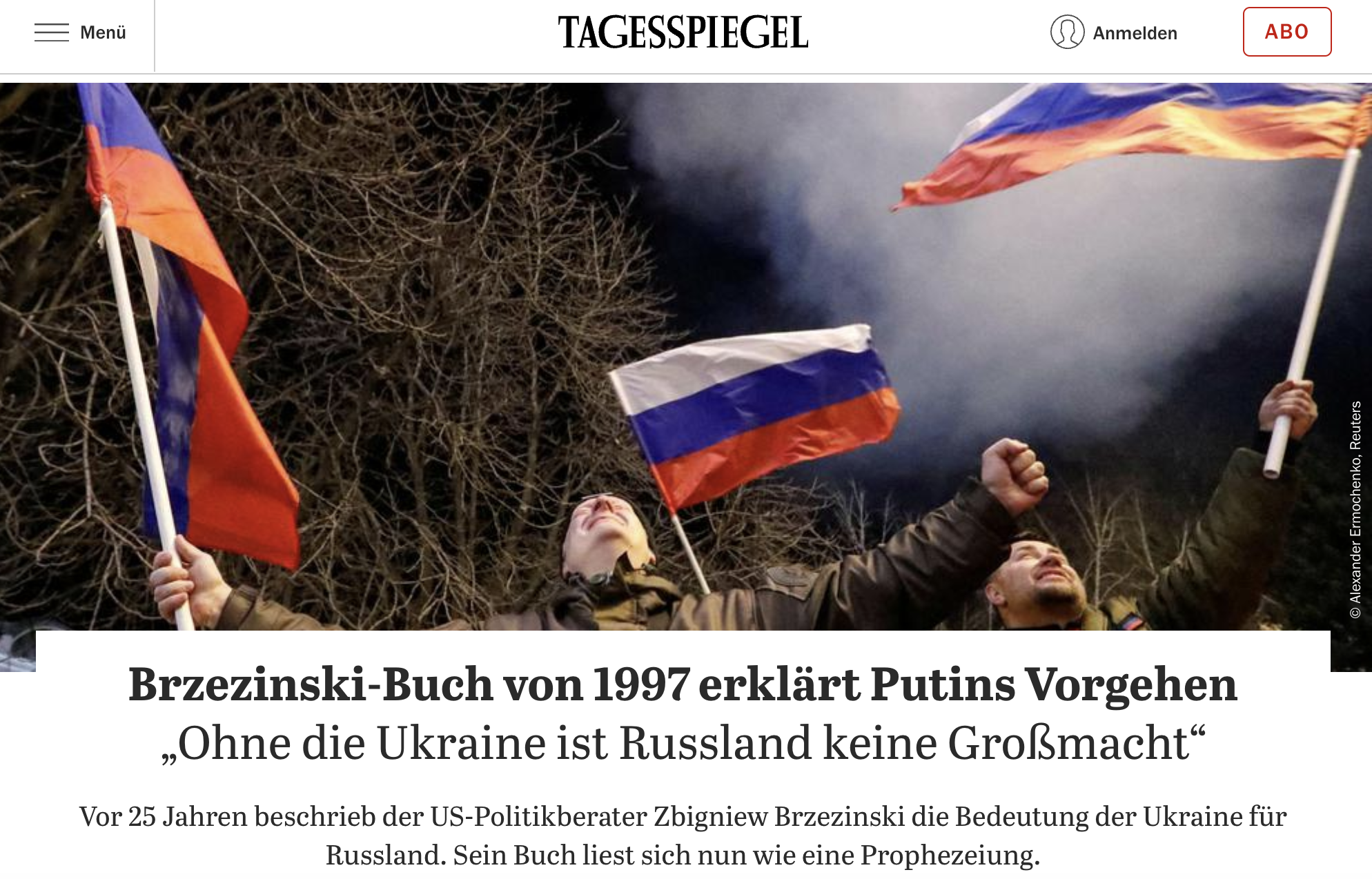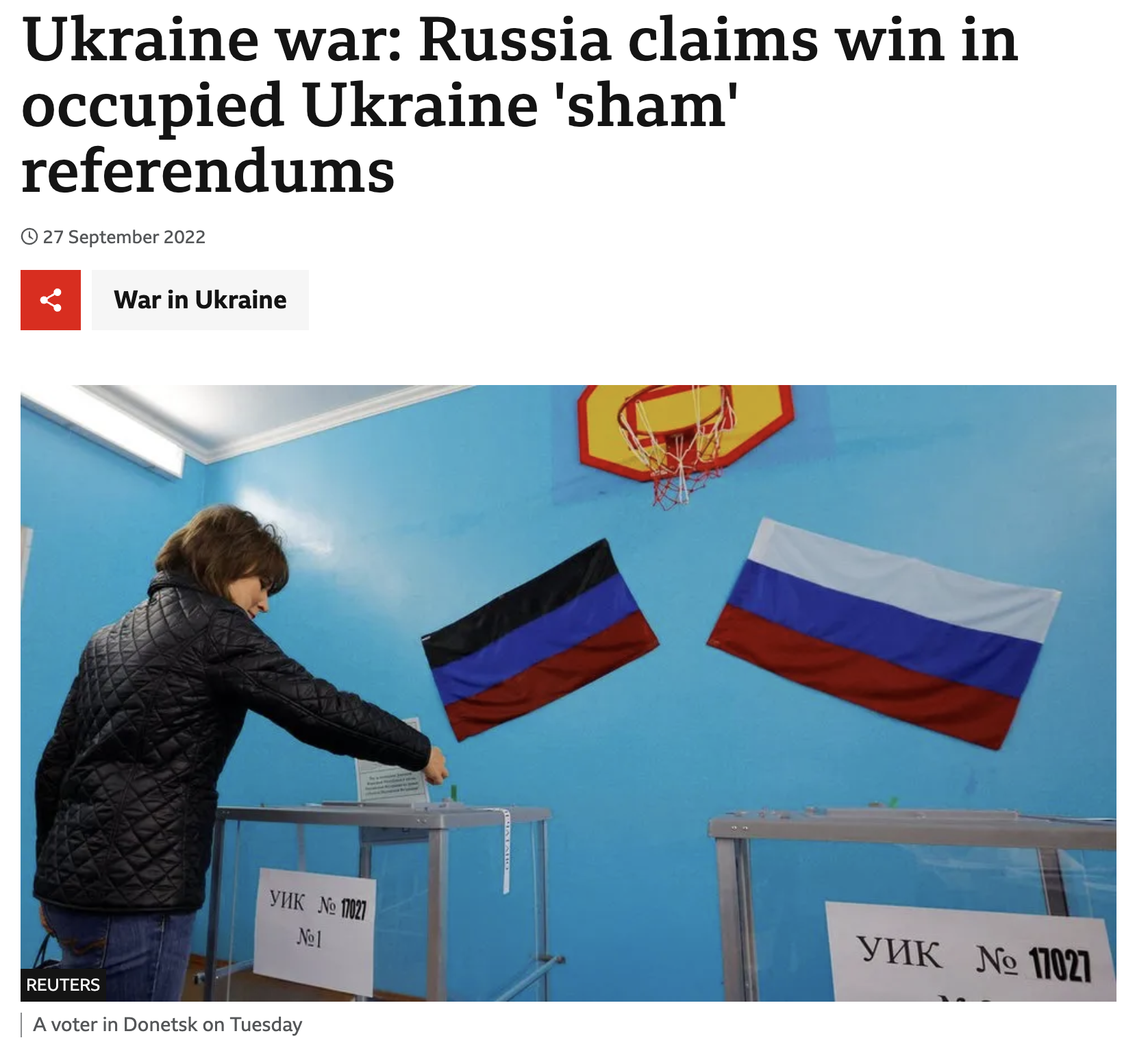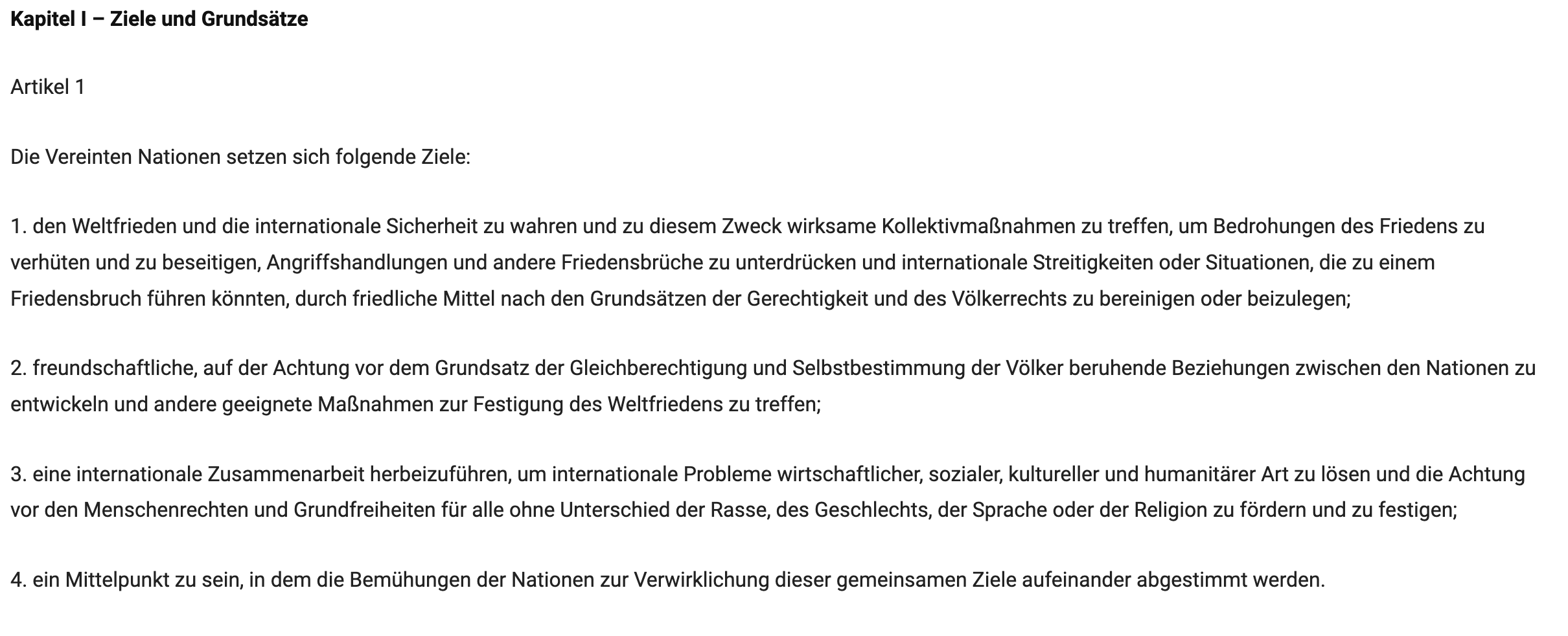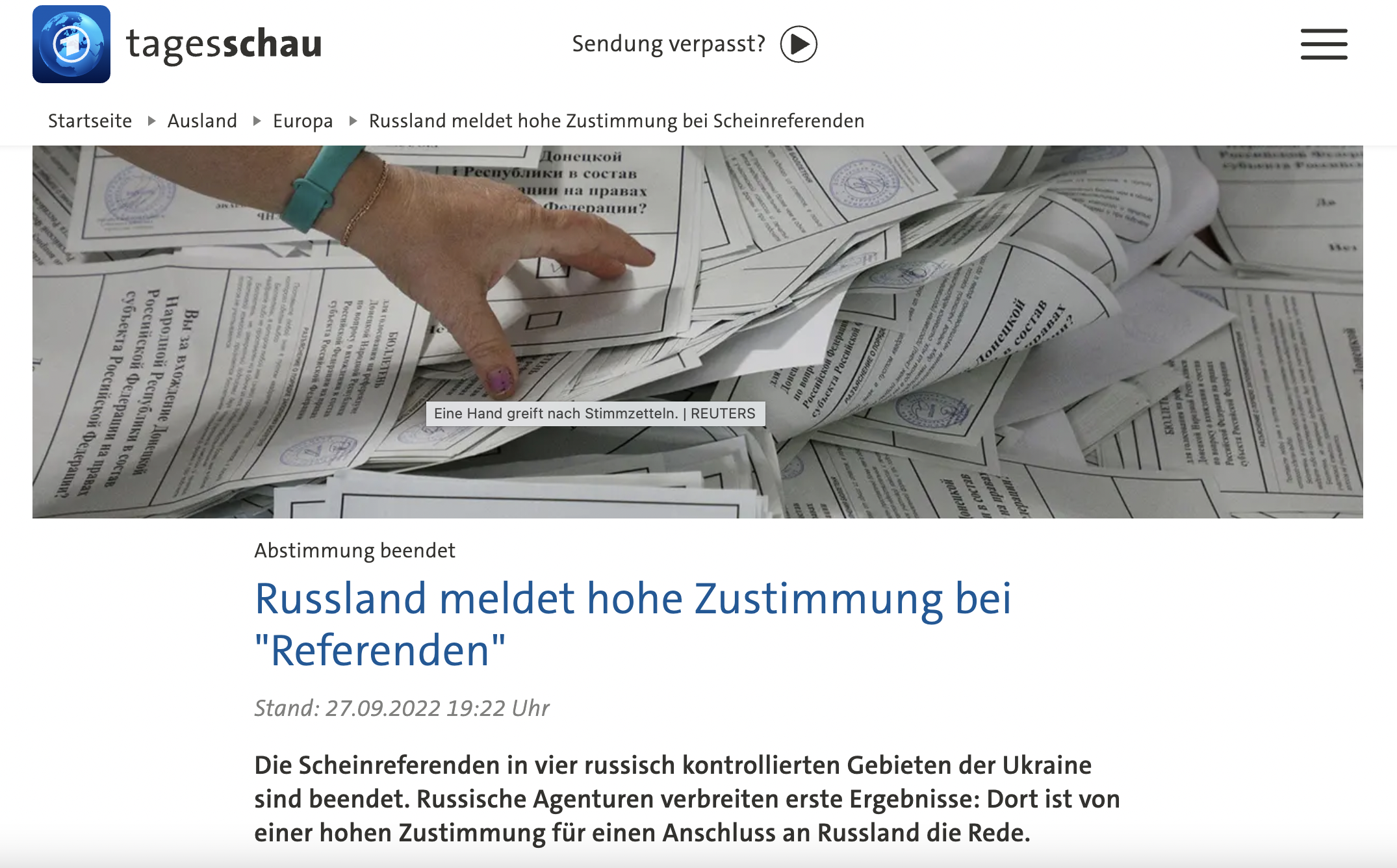The Russia-Ukraine ConflictThe Russia-Ukraine Conflict
Chapter 3
Last exit: annexation
by Ben Köpke
Last exit: annexation (1/6)
The dream: A Russian empire
Illustration: Marlin Beringer
"Without Ukraine, Russia ceases to be an empire"
Last exit: annexation (2/6)
"Without Ukraine, Russia ceases to be an empire"

https://www.tagesspiegel.de/politik/ohne-die-ukraine-ist-russland-keine-grossmacht-5419849.html
Headline on Tagesspiegel, a German newspaper, from February 22, 2022: "Brzezinski book from 1997 explains Putin's approach: "Without Ukraine, Russia is not a great power""
This was written in 1997 by former US security advisor Zbigniew Brzezinski in the Carter administration. These words are over a quarter of a century old and yet still relevant.
Perhaps they also explain why President Putin is fighting with brute force for the restoration of a Russian-dominated empire, whose historical template is a mixture of the Tsarist Empire and the Soviet Union, an empire whose existence is unthinkable without Ukraine.
Last exit: annexation (3/6)
Annexations in 2014 and 2022
The violent annexation of Crimea in 2014 was followed by an attack on the whole of Ukraine on February 24, 2022, in violation of international law. The aim: to replace the pro-Western government in Kyiv, incorporate Ukraine into the Russian sphere of influence, including the Black Sea coast, and divide the West.
All these plans have largely failed - both militarily and strategically.
Last exit: annexation (4/6)
The attempt to legitimize international law: referendums in Eastern Ukraine
Illustration: Marlin Beringer

https://www.bbc.com/news/world-europe-63052207
Picture of ballot boxes with Russian flag in the background
Following the violent and unlawful annexation of Crimea in 2014, Russia also seized the Eastern regions (oblasts) of Ukraine (Luhansk, Donetsk, Zaporizhia and Kherson) in a major invasion in February 2022.
In order to legitimize this additional annexation, President Putin held referendums in the seized oblasts in September 2022. Citizens were asked whether they agreed with the "secession from Ukraine" and incorporation "into the Russian Federation" or whether they supported "the republic's accession to Russia".
Last exit: annexation (5/6)
But the attempt at legitimization fails...

Purposes and principles of the UN in Art. 1 UN Charter

https://www.tagesschau.de/ausland/europa/scheinreferenden-russland-ukraine-101.html
Tagesschau (German public TV station) headline from September, 27, 2022 after "referenda" in Eastern Ukraine: "Russia reports high approval in "referendums""
Moscow relies on the right to self-determination of peoples enshrined in the UN Charter, according to which "peoples" can achieve greater autonomy and, in exceptional cases, independence.
However, it is not pertinent: The people living in these regions belong to the Ukrainian people and are not an independent people that could invoke the right to self-determination.
It is legally not possible for these regions to secede through such a referendum: contrary to Russian claims, there is no evidence of serious discrimination, human rights violations, or genocide by Ukraine, which could grant such as secession right.
Moreover, only a fraction of the Ukrainian population took part in the referendum, which was held under Russian repression and martial law.
Last exit: annexation (6/6)
It remains an illegal annexation!
Illustration: Marlin Beringer
The illegal annexation of the Luhansk, Donetsk, Zaporizhzhia and Kherson oblasts does not make them Russian. These oblasts continue to legally belong to Ukrainian territory; Russia was merely able to seize and occupy these areas. Other states are therefore not allowed to recognize these areas as Russian territory.